Diplomat: His Excellency Francisco de Assis Morais e Cunha Vaz Patto
Words MAXMILIAN WECHSLER
| COMING off hectic Charoen Krung Road into the large compound of the Portuguese embassy in Bangkok is like entering a different world. The walled estate on Captain Bush Lane is a serene green space on the banks of the Chao Phraya River. This is the famously beautiful residence of the new Portuguese envoy to the Kingdom of Thailand, His Excellency Francisco de Assis Morais e Cunha Vaz Patto. |
Barges and other boats sail quietly past the magnificent, two-storey ambassador’s residence, ‘protected’ at the entrance by several authentic ancient bronze cannons. Outside, two wonderful male peacocks look on from a high wall, though they appeared more interested in six female peacocks rummaging for food around a large old Bodhi tree, the type of tree the Buddha was said to be sitting under when he found enlightenment. It seemed appropriate for an embassy compound that could be described as an earthly paradise.
Mr Vaz Patto, who came to Bangkok last November on his first ambassadorial assignment, was a wonderful host. During this interview, he clearly demonstrated a determination to preserve and advance a diplomatic relationship that goes back 505 years. “Our two countries have a long history, and relations are very strong already,” he said. “But there’s always space to grow and my objective is to help make relations even better and stronger than before.”
Mr Vaz Patto then gave a brief review of Portuguese origins in this part of the world. “We started our big adventure of exploration and discovery in the 15th century, and by 1498 Vasco da Gama’s ships had sailed around the Cape of Good Hope and reached the shores of India. By 1511 Portuguese sailors under the great explorer Afonso de Albuquerque were settled at Malacca. That same year Albuquerque sent Duarte Fernandes on a diplomatic mission to the Ayutthaya Kingdom in old Siam. Portuguese barges sailed up the Chao Phraya to Ayutthaya and Fernandes was received by King Ramathibodi II. In fact, he and his crew were the first Europeans to come to what is now Thailand.
“In 1518 our two countries signed the agreement that we will soon celebrate – the 500th anniversary of the Treaty on Friendship and Commerce. The treaty allowed us to set up a trading post in Ayutthaya and this led to a rather large Portuguese community there. At one point there were several thousand Portuguese living in Ayutthaya. The historic attraction Ban Protuguet is a remnant of that ancient Portuguese neighbourhood. We were permitted to construct three Catholic churches there and signs of these are still in evidence today.
“In those days we sold guns, ammunition and cannons to Siam, and Portuguese soldiers always fought on the side of the kings of Siam. Portuguese soldiers were known for their bravery and were the first known bodyguards of King Ramathibodi II. Our settlers stayed in Ayutthaya until it was invaded by the Burmese in 1767. When the capital was moved to Thonburi, King Taksin offered a piece of land to the Portuguese community to build a Catholic church. The community came to be called Santa Cruz after the church. The church is still there and it’s one of the oldest landmarks in the city.
“After the capital of Siam moved from Thonburi across the river to Bangkok in 1782, King Rama I gave the Portuguese community more land in the area where we are now. In 1820 the first Portuguese ambassador to Thailand arrived and began construction of a small wooden house that served as the first embassy. Construction of the present embassy and residence was begun in 1860.”
Mr Vaz Patto’s American-born partner, Dr Kevin P. Colleary, joined the interview and provided fascinating background details of this magnificent compound. “It is the oldest residence of any ambassador in Thailand. It is a beautiful place that we hold in esteem and try to preserve. It is
classified as a monument by the Thai authorities and we try to preserve it in its original condition. The building is protected by laws of both Portugal and Thailand. We (the Portuguese mission) hope to stay here forever.”
Background
Mr Vaz Patto was born in Mozambique, which was a Portuguese colony until 1975. “My father, who was a doctor, was called in 1966 to join the Portuguese army and serve in Mozambique during the war for independence. My mother went with him and that’s why I was born in Mozambique. My parents went back to Portugal when I was still small and I never returned. Actually I would very much like to return one day.”
Before coming to Thailand last year Mr Vaz Patto’s career unfolded mostly in Europe and Africa. He also did a stint at UN headquarters in New York. It was in New York that he and his partner Kevin met. Just before coming here he was posted in Lisbon as General Director for Administration at the Ministry of Foreign Affairs, a job he described as very demanding.
“My first trip to Thailand was 25 years ago, shortly after I graduated from law school. It was a different country then. I was amazed after arriving here for the second time in November. It is very much more developed and it is an amazing place to live. I am very proud and honored that the Kingdom of Thailand is my first ambassadorial posting. I will try to do my best to represent my country and expand relations.”
The ambassador said his first few months in Bangkok have been quite hectic, depriving him of the chance to do things that are important to him, like exercising. “I have had to make contact with so many people and make so many official visits. But now I think things are settling down a little and Kevin and I are trying to fit some personal business into the agenda.
“I have made many courtesy calls to Thai officials. On January 13, I met with Prime Minister Prayut Chan-o-cha for the first time and I have also met with ministers in his cabinet. Developing good communications and contacts is a crucial part of my work here and one that I don’t take lightly,” said Mr Vaz Patto.
“A typical morning is waking before 7am, having breakfast, doing some exercise and then making the short walk to my office. I may have several meetings in a day and with Bangkok traffic this is sometimes a bit of a problem.”
Mr Vaz Patto, who came to Bangkok last November on his first ambassadorial assignment, was a wonderful host. During this interview, he clearly demonstrated a determination to preserve and advance a diplomatic relationship that goes back 505 years. “Our two countries have a long history, and relations are very strong already,” he said. “But there’s always space to grow and my objective is to help make relations even better and stronger than before.”
Mr Vaz Patto then gave a brief review of Portuguese origins in this part of the world. “We started our big adventure of exploration and discovery in the 15th century, and by 1498 Vasco da Gama’s ships had sailed around the Cape of Good Hope and reached the shores of India. By 1511 Portuguese sailors under the great explorer Afonso de Albuquerque were settled at Malacca. That same year Albuquerque sent Duarte Fernandes on a diplomatic mission to the Ayutthaya Kingdom in old Siam. Portuguese barges sailed up the Chao Phraya to Ayutthaya and Fernandes was received by King Ramathibodi II. In fact, he and his crew were the first Europeans to come to what is now Thailand.
“In 1518 our two countries signed the agreement that we will soon celebrate – the 500th anniversary of the Treaty on Friendship and Commerce. The treaty allowed us to set up a trading post in Ayutthaya and this led to a rather large Portuguese community there. At one point there were several thousand Portuguese living in Ayutthaya. The historic attraction Ban Protuguet is a remnant of that ancient Portuguese neighbourhood. We were permitted to construct three Catholic churches there and signs of these are still in evidence today.
“In those days we sold guns, ammunition and cannons to Siam, and Portuguese soldiers always fought on the side of the kings of Siam. Portuguese soldiers were known for their bravery and were the first known bodyguards of King Ramathibodi II. Our settlers stayed in Ayutthaya until it was invaded by the Burmese in 1767. When the capital was moved to Thonburi, King Taksin offered a piece of land to the Portuguese community to build a Catholic church. The community came to be called Santa Cruz after the church. The church is still there and it’s one of the oldest landmarks in the city.
“After the capital of Siam moved from Thonburi across the river to Bangkok in 1782, King Rama I gave the Portuguese community more land in the area where we are now. In 1820 the first Portuguese ambassador to Thailand arrived and began construction of a small wooden house that served as the first embassy. Construction of the present embassy and residence was begun in 1860.”
Mr Vaz Patto’s American-born partner, Dr Kevin P. Colleary, joined the interview and provided fascinating background details of this magnificent compound. “It is the oldest residence of any ambassador in Thailand. It is a beautiful place that we hold in esteem and try to preserve. It is
classified as a monument by the Thai authorities and we try to preserve it in its original condition. The building is protected by laws of both Portugal and Thailand. We (the Portuguese mission) hope to stay here forever.”
Background
Mr Vaz Patto was born in Mozambique, which was a Portuguese colony until 1975. “My father, who was a doctor, was called in 1966 to join the Portuguese army and serve in Mozambique during the war for independence. My mother went with him and that’s why I was born in Mozambique. My parents went back to Portugal when I was still small and I never returned. Actually I would very much like to return one day.”
Before coming to Thailand last year Mr Vaz Patto’s career unfolded mostly in Europe and Africa. He also did a stint at UN headquarters in New York. It was in New York that he and his partner Kevin met. Just before coming here he was posted in Lisbon as General Director for Administration at the Ministry of Foreign Affairs, a job he described as very demanding.
“My first trip to Thailand was 25 years ago, shortly after I graduated from law school. It was a different country then. I was amazed after arriving here for the second time in November. It is very much more developed and it is an amazing place to live. I am very proud and honored that the Kingdom of Thailand is my first ambassadorial posting. I will try to do my best to represent my country and expand relations.”
The ambassador said his first few months in Bangkok have been quite hectic, depriving him of the chance to do things that are important to him, like exercising. “I have had to make contact with so many people and make so many official visits. But now I think things are settling down a little and Kevin and I are trying to fit some personal business into the agenda.
“I have made many courtesy calls to Thai officials. On January 13, I met with Prime Minister Prayut Chan-o-cha for the first time and I have also met with ministers in his cabinet. Developing good communications and contacts is a crucial part of my work here and one that I don’t take lightly,” said Mr Vaz Patto.
“A typical morning is waking before 7am, having breakfast, doing some exercise and then making the short walk to my office. I may have several meetings in a day and with Bangkok traffic this is sometimes a bit of a problem.”
| Cultural connections Mr Vaz Patto said there is a significant connection between Portugal and Thailand in terms of culture, and noted that some Thai words are of Portuguese origin, such as ‘sala.’ “Some of the desserts here are also based on Portuguese recipes, especially egg desserts like Foi Thong, Thong Yip, or Thong Yot. We have exactly the same desserts in Portugal. You can find cakes in Thonburi bakeries that have a definite Portuguese influence. “Then there are the old traditions and history that connect us. Just last year a memorandum of understanding was signed between the fine arts departments of our two countries to protect our shared cultural heritage. Initiatives are underway to implement it. Cultural exchange visits are ongoing. We are organising various exhibitions and participating in events such as a dance festival at the end of the year that will bring Portuguese dancers to Thailand. |
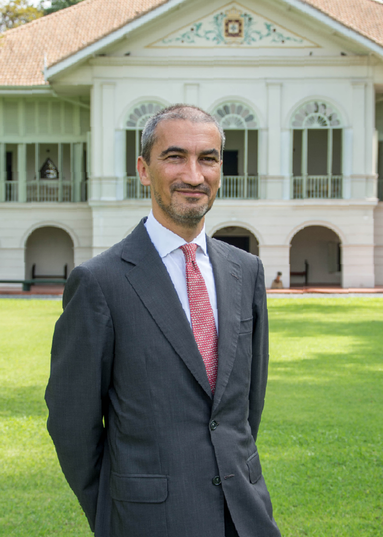
“We will also participate in the 15th World Film Festival of Bangkok in November 2016. We have an agreement with the Thai Film Archives to show one Portuguese film a month. We were involved in the Bukruk-Urban Arts Festival held in the embassy neighbourhood in January.”
The embassy is also promoting awareness of the Portuguese influence in local architecture and culture. “Shortly after I arrived I visited the Portuguese neighbourhoods in Thonburi and Bangrak, and places like the Church of the Immaculate Conception in the north of Bangkok. We are trying to emphasise this connection in cultural events we are planning for this year, like visits to the areas where Portuguese people settled and where many Thais with Portuguese ancestry live today.”
Bilateral relations
Mr Vaz Patto said there are numerous commercial and investment collaborations ongoing between Thailand and Portugal. “But it is one of my primary challenges to find ways to develop stronger economic relations. We are working to attract more Portuguese investors. We intend to show them the incredible possibilities that exist in Thailand,” he pointed out.
“We also want more Thai investors to look at Portugal. There are some already there, especially in the tourist industry. Tourism in Portugal is growing very fast. Last year we had approximately 16 million visitors. That’s a lot of people for a country with a population of 10 million, and they came from all over the world, including Thailand. About 10,000 Thais visited Portugal last year. Around 30,000 Portuguese nationals visited Thailand in 2015. As the numbers show there is plenty of room for growth.
“It is good to see Thais investing in tourist areas in Portugal, and this is a smart move. Portugal is a magnificent country, there are so many attractions. You have cultural, historical and natural beauties like beaches and mountains. You have fabulous golf courses and all sorts of festivals. There is so much to do in Portugal. Lisbon is a growing hub for flight connections to and from South America, Africa and other parts of Europe. We hope that soon there will be direct flights from Bangkok to Lisbon as there were in the past. This would be a dream come true in terms of boosting tourism between our countries.”
Much of Mr Vaz Patto’s work consists of supporting and representing Portuguese people living in Thailand. “There are about 1,000 Portuguese expats here. It is not such a big community but you can find all kinds of people within it. Some are young Portuguese who have come to work in the tourism industry or corporate world. Others are people who immigrated many years ago. There’s a big variety in the Portuguese community in Thailand, which is good because it shows the diversity of Portugal to the Thai people.
“The Thai expat community in Portugal is a little larger, maybe 1,200 or 1,300 people, and it is increasing. These respective expat communities help to strengthen contacts and develop business between our two countries.
“There are around 250 companies that export goods from Portugal to Thailand – mainly cars, spare parts, software, textiles, paper products, wine and cork (Portugal is the biggest producer of cork in the world). Thailand exports to Portugal machinery and equipment, plastic, rubber and seafood, as well as cars and spare parts, which are going both ways. We also import rice from Thailand but not so much because we grow our own rice. Portuguese are among the biggest consumers of rice in Europe. Maybe this is the Thai influence,” said Mr Vaz Patto with a smile.
He said his embassy and the Portuguese government are also working to develop educational ties with Thailand. “We have agreements and exchange protocols with Chulalongkorn, Thammasat, Kasetsart, Mahidol and Ramkhamhaeng universities. We are trying to establish Thai language programs at Portuguese universities and we actively encourage and support Thai university students who want to study in Portugal.
Our schools are well respected in many disciplines, for example economics at Nova University in Lisbon is very highly ranked internationally.
“We have a lecturer teaching Portuguese language at Chulalongkorn and Thammasat universities and we hope to bring another professor to teach at Kasetsart. At Thammasat University Portuguese is taught in the ASEAN Studies Department.”
The ambassador pointed out that Timor-Leste, a Portuguese speaking country, is a candidate for membership in ASEAN. One day Portuguese will also be one of the ASEAN languages. “The current charge d’affaires at the Timor-Leste embassy, Francisco Dionisio Fernandes, is my good friend. Membership in ASEAN will be very good for Timor-Leste,” said Mr Vaz Patto, adding that this was certainly the case for Portugal with regard to its joining the European Union in 1986.
Embassy tour
“In the compound we have the chancery building and the residence, and at the rear, accommodation for the Thai staff which is now under renovation, said Mr Vaz Patto.
“All the teak wood inside the residence is original. When the Portuguese came from Ayutthaya in the late 1700s they brought with them a beautifully decorated door that we now keep here. The door was part of a house in Ban Protuguet and it is exhibited here on the ground floor. It really is a beautiful piece.”
The Portuguese mission in Thailand is rather small, with just two Portuguese diplomats, four Portuguese staff and two Thai staff. “We work in an almost open space so we can see each other. I am very lucky that my personal assistant speaks perfect Portuguese as well as her native Thai.
“I will also be accredited as the Portuguese ambassador to Myanmar, Cambodia, Laos, Vietnam and Malaysia and I will start making trips to these countries. We will have a very busy time managing this with such a small staff, but we will do our best.
“Because the embassy compound fronts the Chao Phraya River, almost on the same level, it is vulnerable to flooding. So we have a high flood wall to protect the embassy. We have a complex system to pump water out but it is sometimes difficult to keep the river from encroaching onto the property. The flood wall is now undergoing repairs and renovation.
“We also have a Portuguese chef here. When we host a reception and invite guests we like to share Portugal’s culinary traditions. Our chef is also learning to cook Thai food so that we can offer our guests both cuisines. As I have said, the Portuguese influence in Thai food is quite apparent.”
Personal
Mr Vaz Patto speaks Portuguese, English, French, German and Spanish and is now attending a Thai class. “We have classes every week. It is not an easy language, but the good thing is that many of the sounds are not so different from Portuguese. Otherwise, however, the two languages are very far apart. Anyway, I will do my best to be speaking Thai soon.
“As for hobbies, I like to exercise and cycle. I love to paint but now I don’t have the time. I am not very good
but I find it an excellent way to distract myself. I like to read and we enjoy going to the movies and to explore this amazing city.
“I am almost 50 years old. Normally Portuguese diplomats retire at around 66, but it’s not fixed. After 70, retirement is compulsory. The term for ambassadors is normally three or four years, and I am hopeful that I might be here even longer. The people have given me a lovely welcome. I think many Thais have affection for Portugal and its people because they are aware of our long shared history.”
“In the compound we have the chancery building and the residence, and at the rear, accommodation for the Thai staff which is now under renovation, said Mr Vaz Patto.
“All the teak wood inside the residence is original. When the Portuguese came from Ayutthaya in the late 1700s they brought with them a beautifully decorated door that we now keep here. The door was part of a house in Ban Protuguet and it is exhibited here on the ground floor. It really is a beautiful piece.”
The Portuguese mission in Thailand is rather small, with just two Portuguese diplomats, four Portuguese staff and two Thai staff. “We work in an almost open space so we can see each other. I am very lucky that my personal assistant speaks perfect Portuguese as well as her native Thai.
“I will also be accredited as the Portuguese ambassador to Myanmar, Cambodia, Laos, Vietnam and Malaysia and I will start making trips to these countries. We will have a very busy time managing this with such a small staff, but we will do our best.
“Because the embassy compound fronts the Chao Phraya River, almost on the same level, it is vulnerable to flooding. So we have a high flood wall to protect the embassy. We have a complex system to pump water out but it is sometimes difficult to keep the river from encroaching onto the property. The flood wall is now undergoing repairs and renovation.
“We also have a Portuguese chef here. When we host a reception and invite guests we like to share Portugal’s culinary traditions. Our chef is also learning to cook Thai food so that we can offer our guests both cuisines. As I have said, the Portuguese influence in Thai food is quite apparent.”
Personal
Mr Vaz Patto speaks Portuguese, English, French, German and Spanish and is now attending a Thai class. “We have classes every week. It is not an easy language, but the good thing is that many of the sounds are not so different from Portuguese. Otherwise, however, the two languages are very far apart. Anyway, I will do my best to be speaking Thai soon.
“As for hobbies, I like to exercise and cycle. I love to paint but now I don’t have the time. I am not very good
but I find it an excellent way to distract myself. I like to read and we enjoy going to the movies and to explore this amazing city.
“I am almost 50 years old. Normally Portuguese diplomats retire at around 66, but it’s not fixed. After 70, retirement is compulsory. The term for ambassadors is normally three or four years, and I am hopeful that I might be here even longer. The people have given me a lovely welcome. I think many Thais have affection for Portugal and its people because they are aware of our long shared history.”
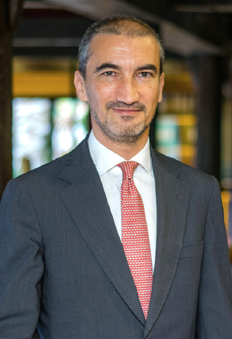
H.E. Francisco Vaz Patto in focus
Education
1989: Law Degree from Catholic University of Lisbon.
1990: Post-graduate Degree European Studies at Catholic University of Lisbon.
Occupation Record
1990: Joined the Foreign Service.
1995: Embassy of Portugal in Bonn.
1997: Delegate of Portugal to NATO in Brussels.
1998: Embassy of Portugal in Berlin.
1999: Embassy of Portugal in Luanda, Angola.
2004: Head of European Institutions Department at the Ministry of Foreign Affairs in Lisbon.
2005: Advisor to the Secretary of State for National Defense and Sea Affairs at the Ministry of Defense in Lisbon.
2006: Chief of Cabinet of the Secretary of State for European Affairs at the MFA in Lisbon.
2008: Political Coordinator of the Permanent Mission of Portugal at the United Nations Headquarters in New York.
2013: Director-General for Administration at MFA in Lisbon.
November 2015: Ambassador Extraordinary and Plenipotentiary of Portugal to the Kingdom of Thailand.
Decorations
Grand Cross of the Merit Order (Portugal).
Knight Commander of the Honorary Order (Federal Republic of Germany).
Education
1989: Law Degree from Catholic University of Lisbon.
1990: Post-graduate Degree European Studies at Catholic University of Lisbon.
Occupation Record
1990: Joined the Foreign Service.
1995: Embassy of Portugal in Bonn.
1997: Delegate of Portugal to NATO in Brussels.
1998: Embassy of Portugal in Berlin.
1999: Embassy of Portugal in Luanda, Angola.
2004: Head of European Institutions Department at the Ministry of Foreign Affairs in Lisbon.
2005: Advisor to the Secretary of State for National Defense and Sea Affairs at the Ministry of Defense in Lisbon.
2006: Chief of Cabinet of the Secretary of State for European Affairs at the MFA in Lisbon.
2008: Political Coordinator of the Permanent Mission of Portugal at the United Nations Headquarters in New York.
2013: Director-General for Administration at MFA in Lisbon.
November 2015: Ambassador Extraordinary and Plenipotentiary of Portugal to the Kingdom of Thailand.
Decorations
Grand Cross of the Merit Order (Portugal).
Knight Commander of the Honorary Order (Federal Republic of Germany).

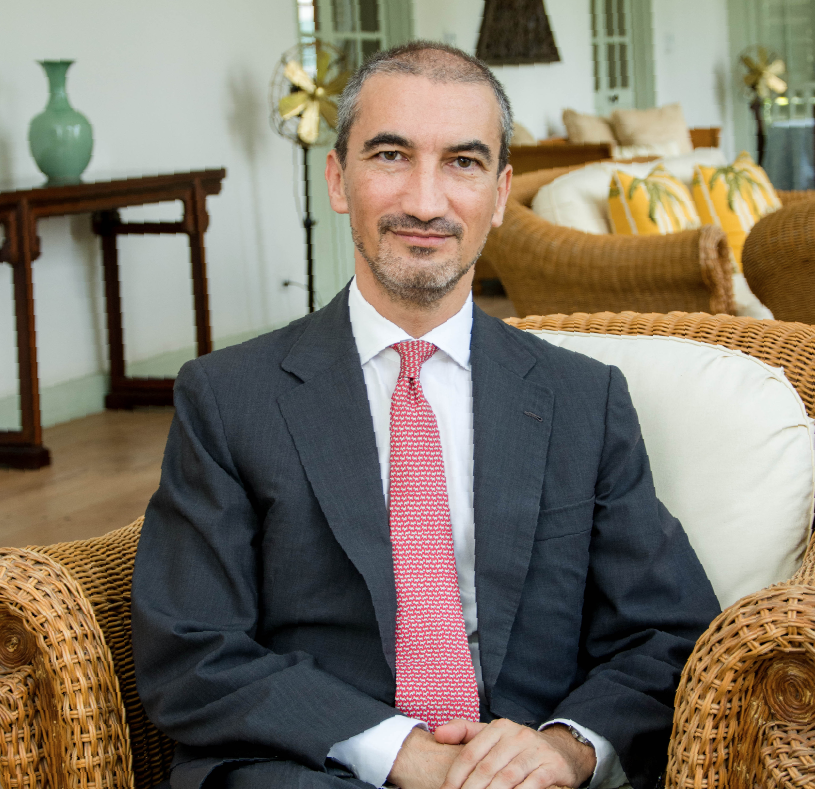
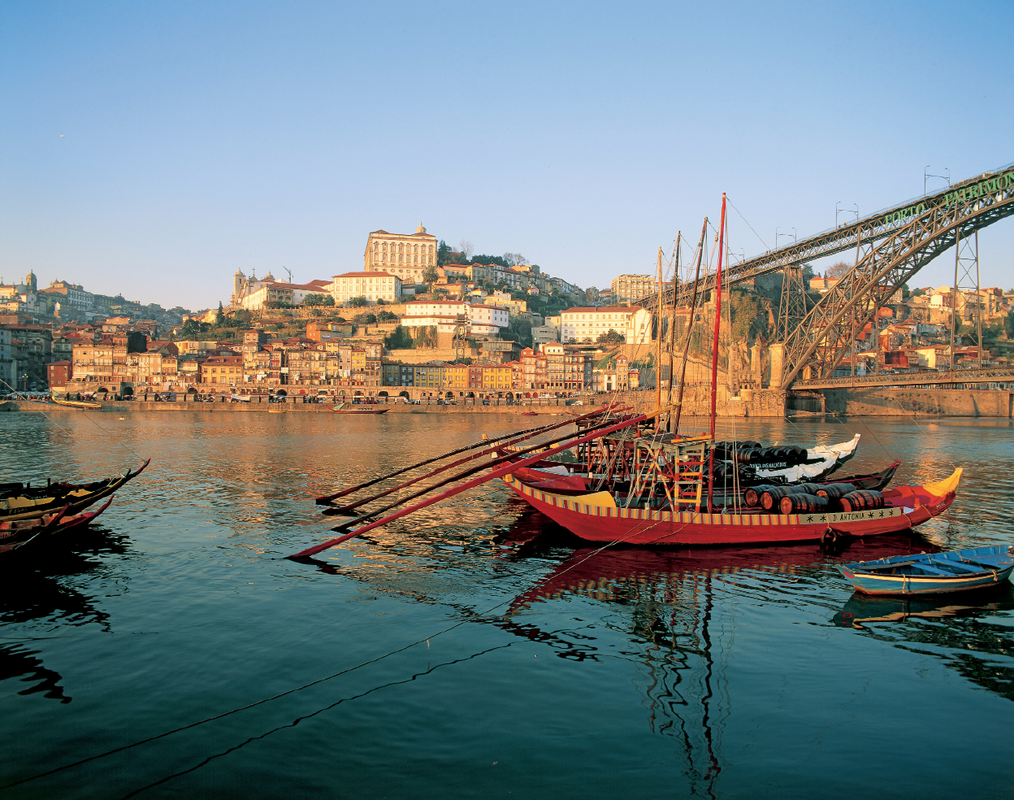
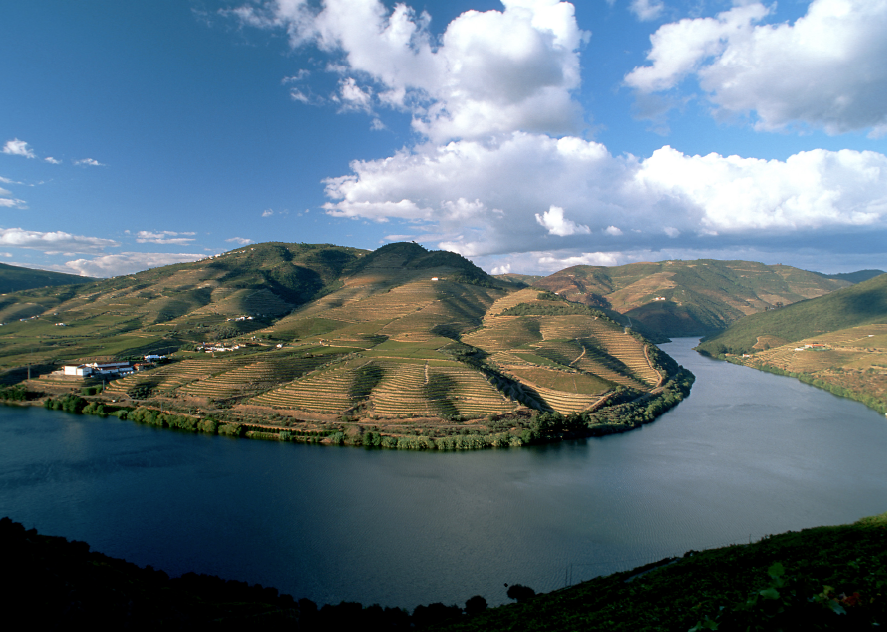
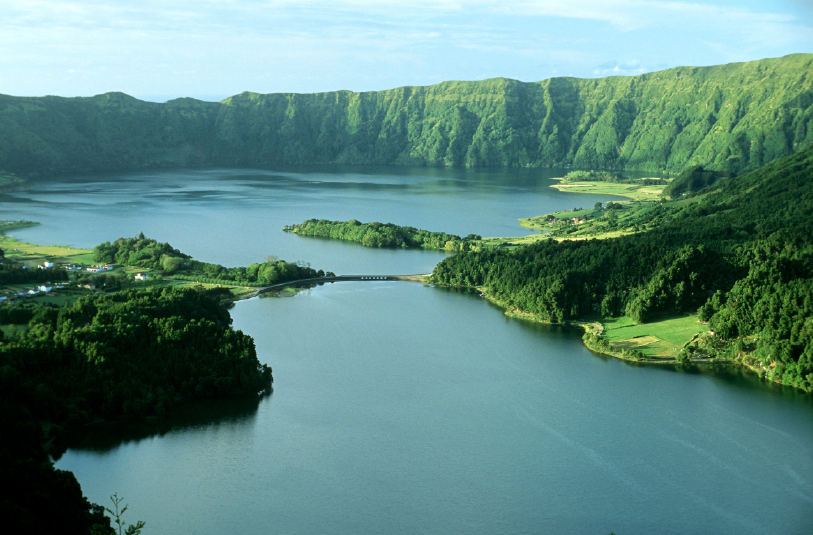
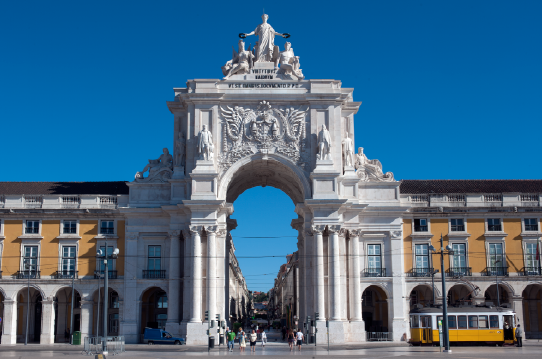
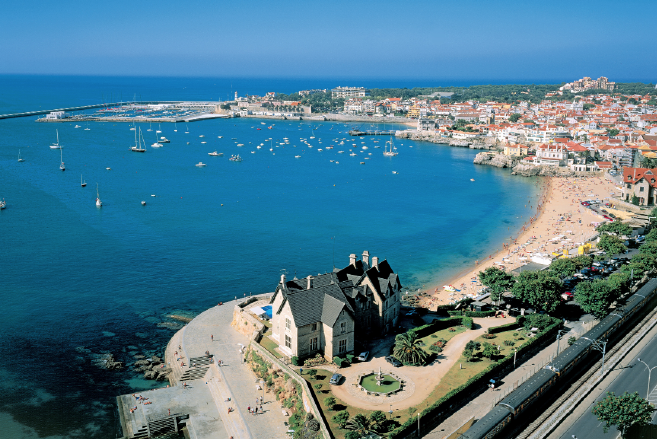
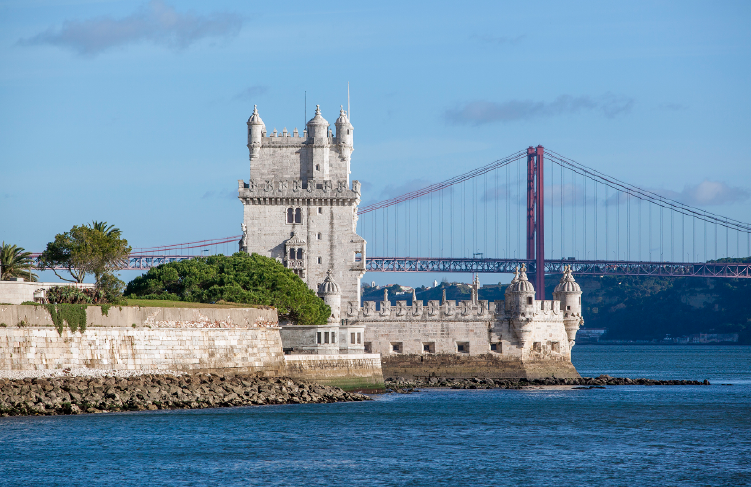
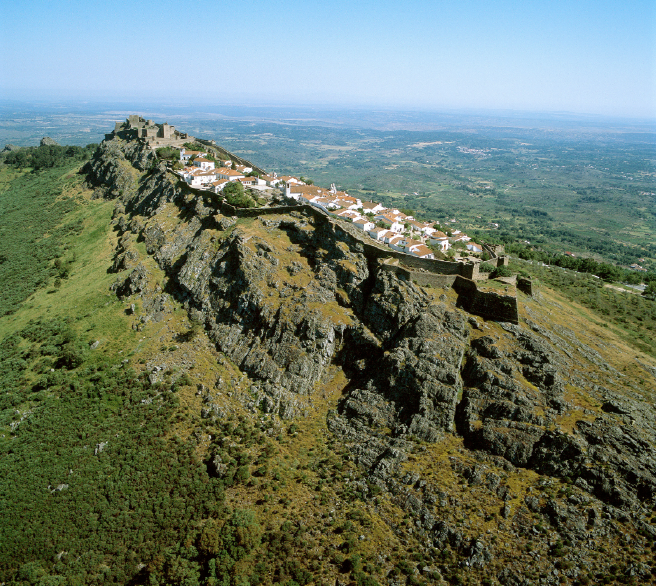
 RSS Feed
RSS Feed
















